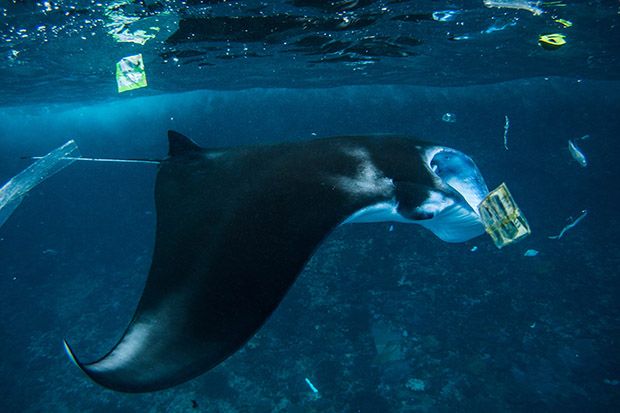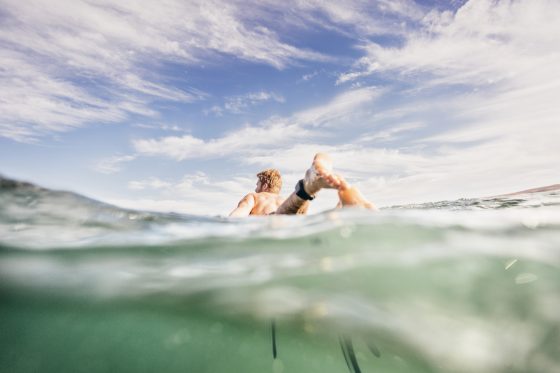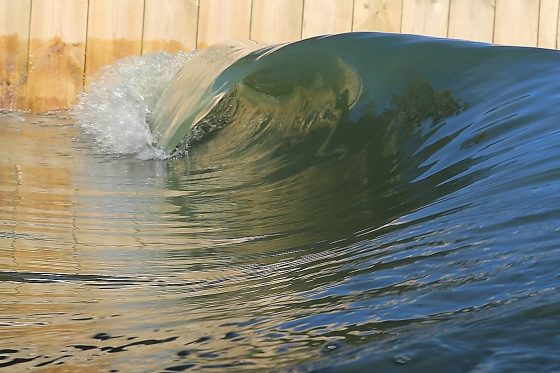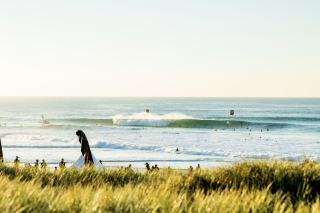Last week British diver Rich Horne posted a shocking video showing him swimming through a sea of plastic rubbish, providing a stark reminder of the extent of the problem currently plaguing the world’s oceans.
The video was captured off the coast of Nusa Peninda, a tropical island paradise famous for its diving, which sits just off the south east coast of Bali. Concerns have been raised for years about the mounting plastic problem in Indonesia, where waste management systems have failed to keep up with the rubbish created by the vast number of tourists who flock to the islands. When monsoon season rolls around, rivers flow through the streets carrying rubbish out into the ocean. Then, when the wind swings onshore, ocean currents carry the plastic back inland and deposit on Bali’s many famous beaches.
 Indonesia produces around 130 thousand tonnes of plastic and solid waste everyday, and, according to the ROLE Foundation, about half of that ends up in land fill. The remainder is thought to be burned or illegally dumped in rivers and oceans.
Indonesia produces around 130 thousand tonnes of plastic and solid waste everyday, and, according to the ROLE Foundation, about half of that ends up in land fill. The remainder is thought to be burned or illegally dumped in rivers and oceans.

A strong message. Photo: Bye Bye Plastic Bags
Activists blame poor government planning and a lack of awareness for the problem, which has cemented Indonesia as the second largest plastic polluter in the world after China.
However, slow progress does appear to be being made. After a concerted campaign by a group of local activists called Bye Bye plastic bags, the government has agreed to work with them towards making the island free of plastic bags by 2018, with a view to extending the commitment to the rest of Indonesia by 2021.
Earlier this year, thousands turned out across Bali to take part in a mass clean up operation, organised by One Island One Voice, with a view to raising awareness of the issues and making a dent in the vast amount of rubbish that has accumulated in the island’s jungles and rivers.
Many media outlets have reported that the waste issue has become so severe in Bali that tourism, which is the island’s biggest economy, is begining to take a hit. According to BBPB, Bali has the legal autonomy, and the public support to do something about the issue. Surely the government are begining to realise that now is the time to take decisive action.
In an update to this video, divers returned to Nusa Penida the very next day and reported that they saw no plastic/trash at all. Great for the mantas coming in for a clean Manta Point, but, sadly the plastic is continuing on its journey, off into the Indian Ocean, to slowly break up into smaller and smaller pieces, into microplastics. But not going away.
*Story republished courtesy of Wavelength Magazine and its author Luke Gartside at Wavelength Magazine https://www.wavelengthmag.com









